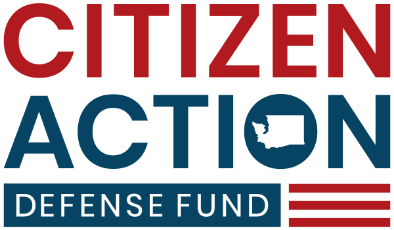I have written before about the benefits of direct democracy—especially that they permit constituents to “pierce” the veil of representation and pass broadly popular legal reforms that, for one reason or another, faces seemingly intractable political inertia. And whenever this is infeasible, representative democracy is the least bad alternative. Another alternative—bureaucratic fiat—has been oft-employed in recent decades at nearly every level of government: local, state, and federal. Today, the U.S. Supreme Court overturned its so-called “Chevron doctrine,” which for decades permitted career and appointed federal bureaucrats to essentially make new, binding laws under the guise of “agency actions” or the like, freed from the courts’ independent reading of the parameters of their statutory rulemaking authority. This is a landmark moment for the notion—for too long dormant outside of academic circles and judicial nomination hearings—that rules and regulations, as with any laws, should hue as close to the will of the majority as possible (with the glaring, classical-liberal exception that the majority cannot be trusted to ensure the fundamental rights of those outside the majority).
Just weeks before the high court initiated this long-awaited rebottling of runaway federal rulemaking, one of our own homegrown officials reminded us, once again (and again), why we must jealously maintain a political culture in which the people’s will—rather than politicos’ wish for what ought be popular opinion—takes center stage. Perhaps in accidental homage to The Clash’s anti-mainstream ethos (leaving aside that “I Fought the Law and the Law Won” was a Sonny Curtis original), officials like our state superintendent, Chris Reykdal, too often will “fight” the law simply by ignoring it—or urging others to do so (or, not do so, as it were).
But unlike the now-aged or deceased punk rockers of yesteryear (rest in peace, Joe Strummer), these officials have for too long been allowed to “win” these wholly unwarranted fights.
Earlier this month, Reykdal implored school districts across the Evergreen simply to “ignore” I-2081—the initiative, approved by Olympia before it went to ballot—that ensures parental access to their children’s school psychological and medical records. Specifically, I-2081—also called the “Parents’ Bill of Rights”—“would provide certain rights to parents and guardians of public-school children, including rights to review instructional materials, inspect records, receive certain notifications, and opt out of certain activities, like sexual-health education.” This seems eminently commonsensical. This rule would not have been necessary even a decade ago. Fast forward to today, where district attorneys across the country are straight up refusing to prosecute almost all non-homicides, nor the deranged Columbia students who for several hours last month falsely imprisoned two custodians, somehow in the name of “Palestine.”
As indicated, this is far from the first time a Washington official either declined to execute a law themselves or urged others not to do so instead. One official dominates among notable cases—his or her name rhymes with “Shmay Shminslee.” In 2017, for example, the governor issued an executive order directing state officials not to comply with federal requests for information on undocumented immigrants. One does not have to love or hate the law in question to recognize the inevitable chaos that this attitude, left to permeate, will generate. Both sides have been guilty of this—though at least in Washington far more among the left (in part owing to their statewide dominance since the early 2000s). In 2019, for instance, several sheriffs plum refused to enforce a duly-enacted ballot initiative strengthening gun-control rules.
Recent decades have doubtless witnessed a swift acceleration in such anti-democratic inaction—again, in part due to the seeming surety of Democratic dominance of statewide offices. While Reykdal himself would not have direct authority to ensure district-level compliance with the so-called “Parents’ Bill of Rights,” his cavalier approach to a law he simply does not like still gives great pause. If left unaddressed—either in the courts or the court of public opinion—we are less than a single political generation away from such legal ignorance becoming a matter of course. Courts are the ultimate arbiter of what the law is—once it is written and applied, of course—but, famously, judges lack the “muscle” to enforce its interpretations.
Our entire legal system relies, ultimately, on the good faith of those who do have such muscle—i.e., the panoply of pecuniary and penal punishments at officials’ disposal. The importance—and ultimate tenuousness—of such good faith comes into starkest relief with ballot initiatives. It is far easier for appointed officials (though Reykdal happens to be elected) to ignore the entreaties of the voting public than it is those of lawmakers—i.e., the ones who hold your purse strings. Reykdal’s imploration to local school administrators is the latest in a dangerous trend that has upticked in recent years—largely coinciding with the triumph of “bureaucratic fiat” at all levels of government.
While the defeat of Chevron is a promising signal to those who prize the people’s power above all, Reykdal’s unabashed call for official nonfeasance indicates that this fight is not close to finished. That those who wish to ensure that “government of the people, by the people, for the people, shall not perish from the earth” must keep up their guard at all tiers. Necessary—though hardly sufficient—to securing this end is first assuring that our public officials, at a minimum, enforce those laws on the books; or at least do not implore others not to perform their constitutional and/or statutory duties.
Alki,
Sam Spiegelman

